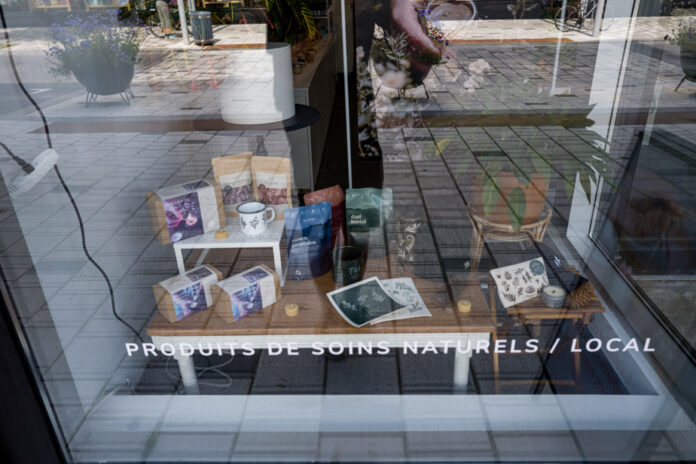A decline also noted by the general director of the Association of Professionals in Economic Development of Quebec (APDEQ), Vincent Lecorne.
The curves from the Global Entrepreneurship Monitor (GEM), piloted in Quebec by Étienne St-Jean and Marc Duhamel, from the University of Quebec at Trois-Rivières, speak for themselves, he said in an interview. This major trend is not unique to Canada, he specifies, referring to the member countries of the OECD.
“It’s scary, the number of SMEs we see closing,” laments Marie Beaupré, co-founder of the company Les Mauvaises Herbes with Mariane Gaudreau and Audrey Woods, in an interview. Recent examples include Quebec-made lingerie brand Sokoloff, which announced it was discontinuing operations after 15 years.
Among the factors slowing down the increase in the number of businesses in Quebec, Mr. Lecorne highlights demographic aging and the job market. “There are a lot of offers for people who want good living conditions, a work-family balance. »
How can we reverse this decline? “We have to put forward the arguments to get someone to be a full-time entrepreneur – another challenge in itself,” notes Mr. Lecorne, who notes the growth “for two, three years” of hybrid entrepreneurship : people who live their personal business project alongside a job that offers them quality of life and stability.
Collective entrepreneurship, which brings together several people in a business project, will also increase, he observes. This approach stemming from the social and circular economy is very attractive in his eyes. “We could highlight it more as a way of having a quality of life, of sharing tasks, of having great business projects bringing together our values. »
Another way to realize an entrepreneurial dream, but without starting from scratch, he explains, is “repreneurship”, which is gaining ground. With the departure of aging owners, the reins of many businesses – “and the good ones” – are up for grabs. Here again, “the numbers speak for themselves,” assures Mr. Lecorne.
Entrepreneurship offers a head start to people with an entrepreneurial spirit, with steps already being taken. “The step may be higher to take ownership of the business at the beginning, but there is already machinery, a customer base, a distribution network in place,” he explains.
Another avenue to take, more flourishing in France, but which would benefit from developing here, he believes, is flexi-entrepreneurship, which provides administrative services to entrepreneurs. They can thus concentrate on their projects.
“Entrepreneurs are conductors who have ideas, ways of doing things that can be out of the ordinary; but business management is not always their cup of tea, points out the director of the APDEQ. It requires training or associating with others. So, if we offer them a platform that takes care of this, we resolve issues. »
In France, this system is equipped with legal structures (health insurance, medication, vacations, etc.) which give it the more protective side of a job, he adds.
Vincent Lecorne also recalls that economic development organizations abound in Quebec; he invites entrepreneurs to turn to those in their territory (cities or MRC), citing PME Montreal.
Ultimately, faced with the “decline of the entrepreneurial landscape to the benefit of multinationals, we must stop thinking that the solution lies in the client portfolio,” concludes Marie Beaupré. We’re not here anymore.”
“We have to ask ourselves what society we want, what entrepreneurial landscape we want. And it would be fun if our governments talked about it because it seems like it falls on deaf ears. Should we understand from their silence that it is not important to them? »





